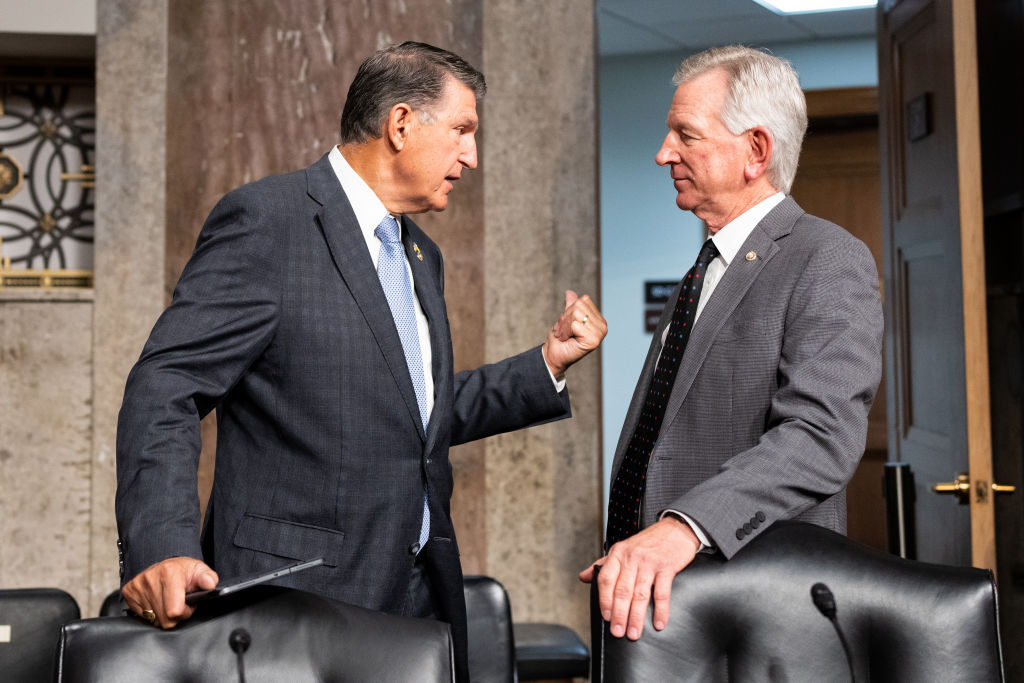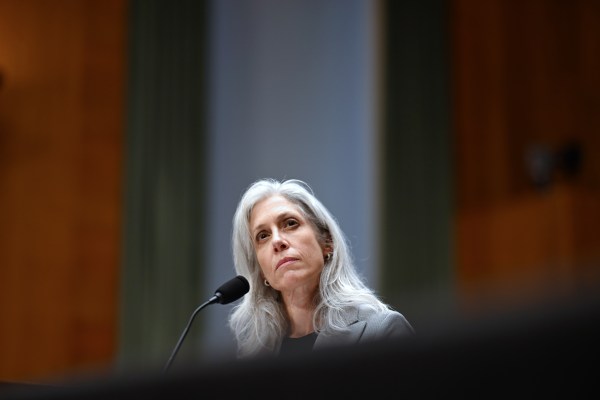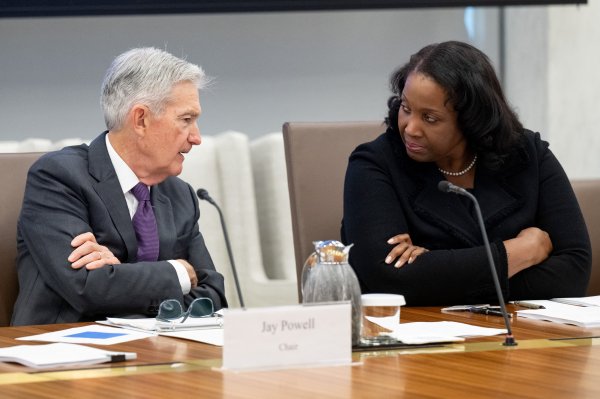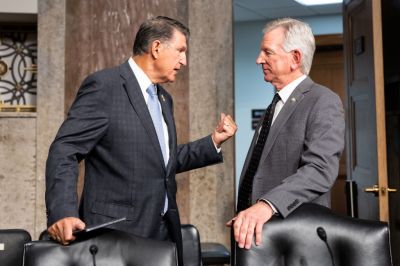It’s deja vu all over again. A sports phrase, one ascribed to Yankees legend Yogi Berra, is appropriate to capture the sudden rush of collegiate athlete name, likeness, and image (NIL) bills that have spread through Congress in recent weeks.
In 2021, the Supreme Court ruled in National Collegiate Athletic Association v. Alston that the organization’s rules limiting student compensation were unconstitutional. In response, the NCAA lifted its ban on student athletes profiting from their NIL, meaning student athletes had a right to endorse products and build their own brands.
In the months after Alson, a patchwork quilt of NIL rules emerged at the state level. Worried about the Wild West nature of it all, Congress proposed scores of NIL regulation bills: some advantageous to athletes, some to the NCAA and schools. The NCAA had just lost a 9-0 decision at the high court that found it violated students rights and so was in no position to lobby for NIL restrictions, and the pandemic rendered NIL legislation a low priority. The bills went nowhere.
NIL deals took off, with by some estimates nearly $1 billion in deals for everyone from gymnasts to offensive linemen in the first year through July 2022. Schools set up the collectives to assist students, and the lucre came rushing in. According to the website On3, which tracks NIL compensation, the current top earner is USC freshman Bronny James (his father is LeBron James) with $6.3 million, followed by LSU gymnast Livvy Dunne, who has earned $3.3 million. Students now routinely transfer to schools with better NIL prospects and some even defer entering the pros because the money is better in school.
But now that the pandemic is over and the NCAA is under new leadership, the landscape has changed, making for more fertile terrain for congressional oversight. The NCAA in December named former Massachusetts Gov. Charlie Baker its new president, a decidedly political choice. Front Office Sports declared Baker, who assumed the post March 1, would turn the NCAA into a lobbying firm—and that rings true. NIL bills are popping up again like mushrooms after a heavy rain.
“The NCAA and conferences and institutions are lobbying on the Hill this summer,” said Alicia Jessop, a professor of sports management at Pepperdine, who is also consulting Rep. Lori Trahan and Sen. Chris Murphy on an athlete-friendly NIL bill proposed last week. “Recently, we saw senators [Joe] Manchin and [Tommy] Tuberville release draft legislation. And my instinct tells me that others on the Hill probably got wind that that was coming.”
The Manchin-Tuberville bill is just one of three introduced recently, and the Protecting Athletes, Schools, and Sports Act is the friendliest to the NCAA. It gives the NCAA partial antitrust immunity, which would allow the body to regulate NIL compensation without fear of being sued by athletes or the boosters who often fund these endorsement deals as a way of luring athletes to campus. It would regulate collectives, the groups of alumni donors formed to offer NIL deals to student athletes; create a regulator to oversee these groups and agents; and establish a uniform NIL contract. And to be even more college friendly, the bill would restrict the player transfer portal, which the NCAA established in 2018 to allow athletes to transfer schools more easily but has been used with greater frequency as athletes seek better NIL opportunities.
The Trahan-Murphy bill, which is a version of one they introduced in 2021, is the most student-friendly of the trio, even expanding NIL rights to foreign student athletes, who are currently barred from the market because of visa restrictions. Pointedly, the bill requires schools to obtain group licenses for athletes if their sport is sold as a media package, essentially giving them a seat at the negotiating table and possibly opening the door to sharing TV revenues directly with players. And the bill places virtually no restrictions on NIL.
Between those two extremes is a bill from Sens. Richard Blumenthal, Jerry Moran and Cory Booker that goes beyond NIL in that it would establish post-college medical funding for athletes. Their bill creates a non-government-operated agency to settle NIL disputes, certify agents, and enforce reforms. It also extends NIL rights to “prospective college athletes”—allowing high school students to cash in.
Darren Heitner is a south Florida sports lawyer who represents the Cavinder twins, Haley and Hanna, former Fresno State and University of Miami basketball players who have been front and center of the NIL revolution. Only the Trahan-Murphy bill addresses the real issue, he argued: that college athletes should have the same rights to their image as anyone else in America
“It's a bit odd that Congress would potentially have a bill that only addresses college athletes’ publicity rights, and not publicity rights for all individuals,” Heitner said. “So to me, no, it's not necessary. And furthermore, I believe the new Trahan-Murphy bill is the only one to address prospective college athletes, right, which would be high schools.” Nineteen states currently do not allow NIL compensation for high schoolers, Heinter said.
Why are schools and the NCAA so worried about liberal NIL rules? First, until 2021 and the Supreme Court body slam, the NCAA ruled like a king over athletes, so giving up that power is not so easy. But there are some more tangible arguments. The NCAA is worried that collectives are essentially pay-to-play endeavors: The NIL deals are lures to get the athletes, not true marketplace endorsements for an athlete established in his or her community.
"Some stories told and others not told of promises made but not fulfilled, of inducements offered but not provided, of empty commitments, and NIL agreements that created more questions than provided answers and other behaviors in this space that rightly caused concern," said Southeast Conference Commissioner Greg Sankey at the league’s annual media day, according to ESPN.com. "The reality is our student-athletes deserve something better than a patchwork of state laws that support their name, image and likeness activities if support is the right word.
The NCAA also wants a transparent registry of all NIL deals, and argues that with big schools and their collectives dominating NIL, the competitive balance of college athletics is threatened.
Jessop, who admits she is somewhat radical on the NIL question, laughs at the NCAA’s competitive balance concern.
“I don't hear the same outcry coming from Charlie Baker that a school like Texas is generating close to a quarter billion dollars in athletic revenue, while mid-majors are going into the red to operate,” Jessop said. “And so the reason why I say things like the concern that collectives are ruining college sport because they’re eviscerating competitive balance is a Chicken Little argument, is competitive balance already doesn't exist.”
What the bills don’t address is whether the athletes are employees. The NCAA has for decades resisted efforts to classify student athletes as employees. The National Labor Relations Board has filed a complaint against USC’s classification of players as student athletes. The complaint names USC, the Pac-12 conference, and the NCAA.
Of the more than a dozen NIL bills previously introduced, zero have gotten out of committee, which certainly does not forebode good tidings for the current iterations. With Congress now in recess, and a government shutdown looming in September, bigger issues look sure to keep the NIL bills bottled up.
“If we look at the past three years, and all the bills that have been proposed, even some that were actually bipartisan, not a single one, despite over six congressional hearings, not a single bill ever reached the floor for debate,” Heitner said. “And I don't see that changing.”






Please note that we at The Dispatch hold ourselves, our work, and our commenters to a higher standard than other places on the internet. We welcome comments that foster genuine debate or discussion—including comments critical of us or our work—but responses that include ad hominem attacks on fellow Dispatch members or are intended to stoke fear and anger may be moderated.
With your membership, you only have the ability to comment on The Morning Dispatch articles. Consider upgrading to join the conversation everywhere.